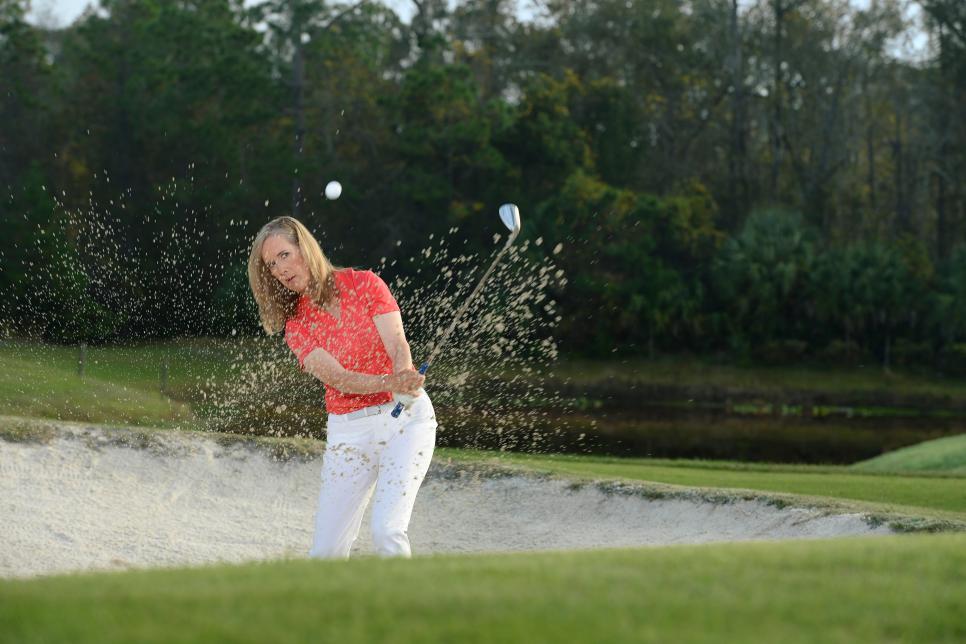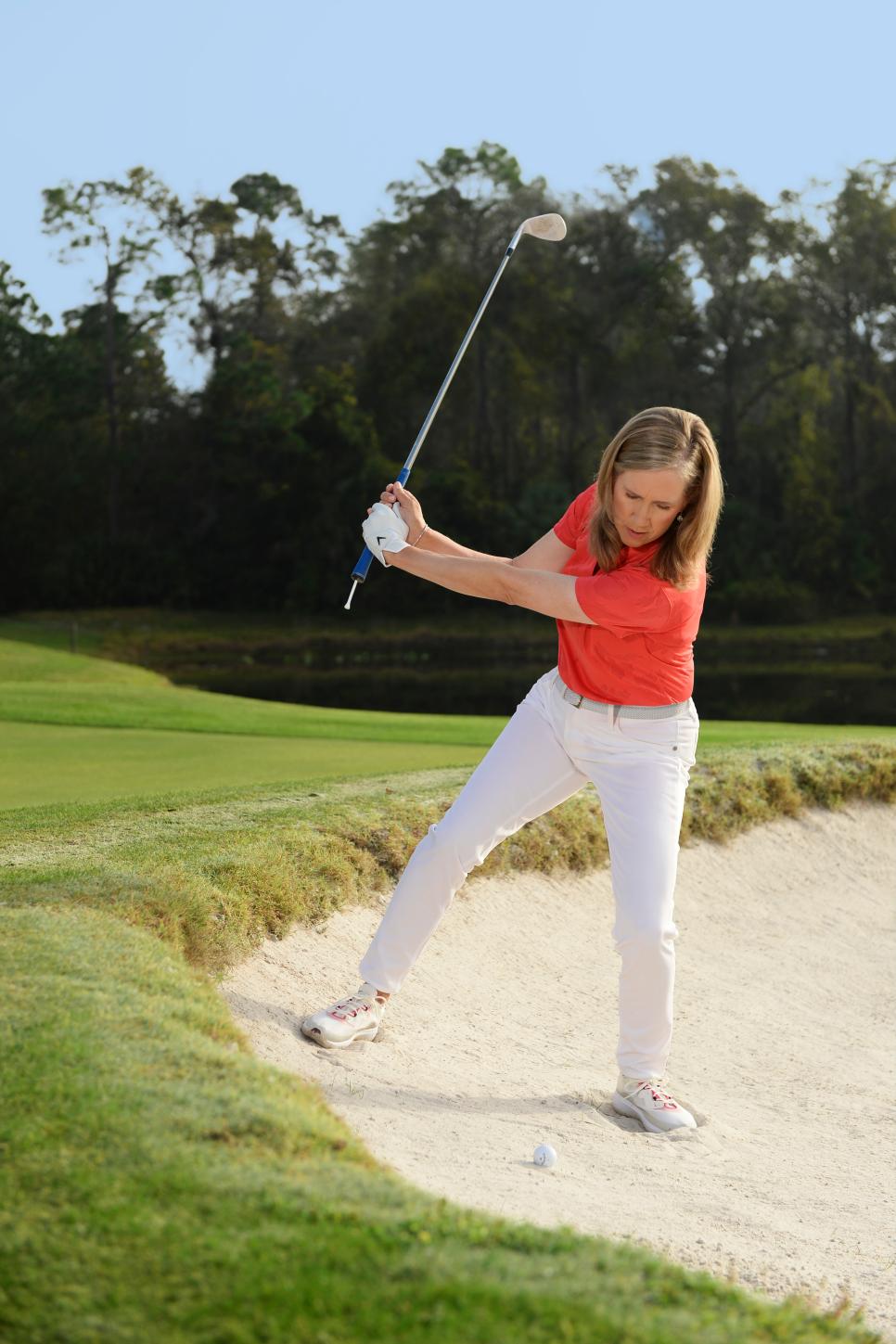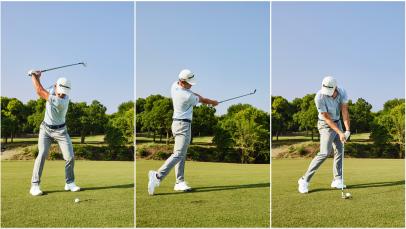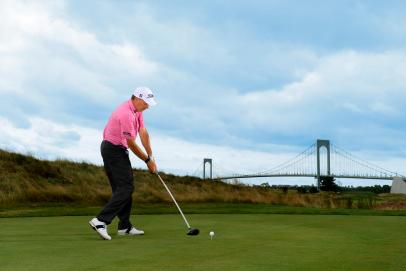Avoid the big number
Shave strokes off your game with these greenside tips

J.D. Cuban
Unlike tour pros, we don't have the benefit of knowing how many strokes we’re gaining or losing around the green compared to other golfers with similar handicaps. But here’s a good general rule: If you can consistently get down in three strokes inside 30 yards, you’re not going to lose ground on your competition. Chances are, you’ll probably pick up a few strokes.
On the flip side, follow a decent approach shot with a flubbed chip or skulled bunker shot and make double bogey, and you’ll not only be giving strokes away, but you’re sure to be steamed. These big misses around the green have a way of staying with you and can erode your confidence.
Around the greens, you need to find a way to get the ball on the green in one stroke and then two-putt—simple as that. Here’s how. —with Dave Allen

J.D. Cuban
CHIPPING
BE ON THE LEVEL
Getting chips to the hole is a struggle for many amateurs. They tend to hit behind the ball or too much up on it, causing fat and thin contact. To chip it solid with good distance control, you need to get the low point of your swing under the ball or a little forward of it. That starts with level shoulders— unlike the full-swing setup. Address the ball, then touch your left hand to your left knee (above, far left) and re-grip the club with both hands (above, center). This adjustment moves your weight more on your front foot, helping you to pinch the ball off the ground. From here, chip the ball with the same tempo as you would a putt. “Tick-tock, brush the grass” is what I tell a lot of my students. Brush the grass on “tock,” and you should make crisp contact every time.

J.D. Cuban
PITCHING
ELIMINATE THE WRISTS
The biggest causes of poor pitch shots are too much wrist action combined with not enough body pivot. Whatever wrist hinge you create in the backswing you must undo by impact, and there’s not a lot of time to do that. Here’s a drill to eliminate excessive, unnecessary wrist action. Grip way down on your pitching club with your right hand so that the handle runs up your forearm (above, left). Now hit some pitch shots with your right arm only, maintaining the connection between the handle and your forearm. Be sure to pivot your body during the backswing. This one-lever method cuts out excessive wrist action and forces you to pivot better, as that’s the only way to catch the ball solid. After hitting a few shots this way, add both hands to the grip and repeat this wide, single-lever feel to your pitching motion.

J.D. Cuban
BUNKER
HINGE FOR SPEED
In contrast to the pitch, the bunker shot requires you to use your wrists. Why? To remove nearly a pound of sand out of the bunker with an open, lofted clubface, you need lots of speed. The hinging, unhinging and re-hinging of the wrists is how you’re going to get it. To encourage this type of wrist action, try the following: Set up close to the back edge of a bunker and stick a tee in the butt of the grip. On the backswing, set the wrists quickly so that the clubhead misses the lip and the tee points straight down (above). Don’t forget to re-hinge the wrists on the follow-through. This releases the clubhead, engages the club’s bounce and creates speed. Splash the sand out onto the green. Note how the sand is the same height as my ball in the opening image. The wrists are a key multiplier of speed. Work on this drill, and you’ll be a much better bunker player.
CHERYL ANDERSON, a Golf Digest 50 Best Teacher, is director of instruction at the Mike Bender Golf Academy in Lake Mary, Fla.




